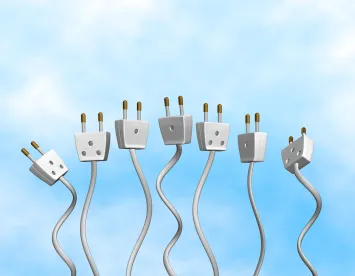Effective November 23, 2015, all solicitations and contracts issued by the Department of Energy will require compliance with applicable export control requirements.
The US Department of Energy (DOE) has adopted a final rule amending the Department of
Energy Acquisition Regulation (DEAR) to add new subparts and clauses regarding export control requirements for DOE contractors.[1] The new clauses will be required in all solicitations issued by DOE on or after November 23, 2015. DOE contractors will be responsible for complying with export control requirements applicable to their contracts as set forth in the new DEAR export clauses.
Although it is important to note that the responsibility to comply with applicable US export control laws and regulations exists wholly independently of a company’s contractual obligations, the new clauses may increase the consequences of an export violation by the contractor.
The New DOE Clauses
New DOE clauses 952.225–71 and 970.5225–1 mandate compliance by DOE contractors with all applicable export control laws and regulations. The clauses must be included in all DOE solicitations and contracts. The contractor is also required to “flow down” these clauses in all of its own solicitations and subcontracts. The new clauses seek to increase awareness of existing export control requirements for DOE contractors and subcontractors; however, as a consequence of their adoption, the failure to comply with export control laws could be viewed as a contractual violation and subject the contractor to additional compliance risks.
The new DOE clauses, along with the Department of Labor’s fair pay rule and the Department of Defense’s constantly evolving cybersecurity rules, represent part of a recent trend of imposing additional contractual obligations on contractors that could form the basis of False Claims Act (FCA) liability. In fact, eight of the 15 respondents to the proposed version of the DOE rule expressed concerns about potential FCA liability under the new clauses. In response, DOE stated that the new clauses do not require reporting or written assurances, so contractors will not assume new liabilities due to the insertion of the clauses. However, despite the agency’s attempt to dispel these concerns, violation of one of these new clauses could serve as the basis for an FCA action under the implied certification theory of liability.
The Courts’ Differing Views on the Implied Certification Theory
Under the implied certification theory, a contractor who submits a claim to the government for payment generally is considered to be implying that it is in compliance with all governing statutory, regulatory, and contractual requirements. Noncompliance may trigger the damages and provisions of the FCA if other elements of liability (such as scienter) are met. The courts of appeals have split regarding the viability of the implied certification theory. The Seventh Circuit, for example, essentially has rejected the theory.[2] In the Seventh Circuit’s view, it is unlikely that a violation of one of the new DOE export clauses would subject the contractor to FCA liability.
On the other hand, the First and Fourth Circuits have adopted the broader holding that the theory applies whenever the contract requirement would be material to the government’s decision to pay.[3] Under the latter theory, a contractor with one of the new DOE clauses who commits an undisclosed export violation could therefore face potential FCA liability, if compliance with the export requirements were to be considered material to payment under the contract.[4]
Conclusion
The defendant in Triple Canopy has filed a petition for writ of certiorari to the Supreme Court to resolve the split, so contractors should stay tuned to learn whether the Court will accept the petition (it previously denied certiorari in the Blackstone case) and provide guidance on the future application (if any) of the implied certification theory. In the meantime, contractors (and subcontractors) should review any new contract clauses carefully for their compliance obligations. For the new DOE export clauses in particular, contractors should take affirmative steps to ensure compliance with the requirements of applicable US export controls through regular employee training on proper export procedures and by conducting periodic audits to confirm that these procedures are being followed.
[1] 80 Fed. Reg. 64,361 (Oct. 23, 2015).
[2] See United States v. Sanford-Brown, Ltd., 788 F.3d 696 (7th Cir. 2015).
[3] See U.S. ex rel. Hutcheson v. Blackstone Med., Inc., 647 F.3d 377 (1st Cir. 2011); U.S. ex rel. Omar Badr v. Triple Canopy, 775 F.3d 628 (4th Cir. 2015).
[4] Several other courts of appeals have held that if an underlying statute or regulation requires compliance as a prerequisite to payment, the implied certification theory may lie in a FCA case. E.g., United States ex rel. Mikes v. Strauss, 274 F.3d (2d Cir. 2001).




 />i
/>i

